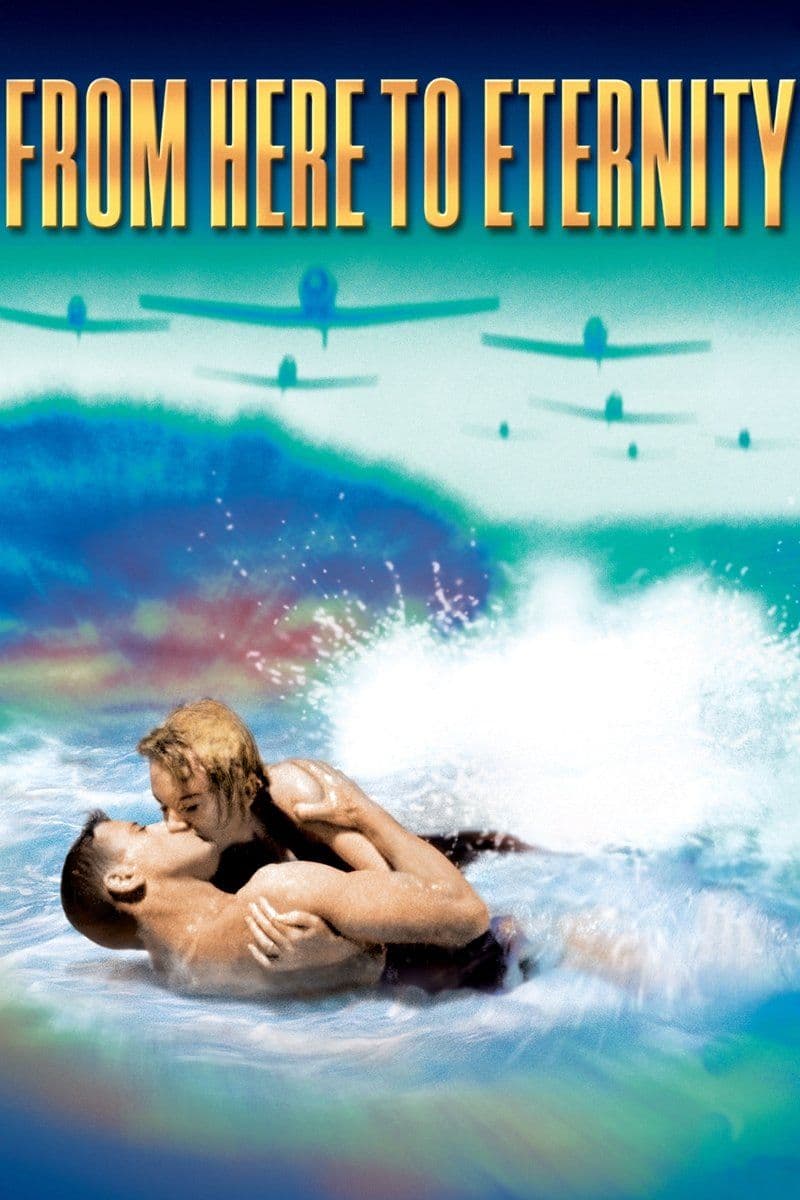
From Here to Eternity
1953
Rate this movie
Average: 0.00 / 5
(0 votes)
Director
In an era when Hollywood was the crucible of myths and counter-myths, From Here to Eternity stood not only as a box office behemoth, but as a landmark that delivered Fred Zinnemann to the Olympus of great masters, sealing his consecration with the unparalleled triumph of a remarkable eight Academy Awards. A victory which, at the time, was an almost unprecedented affirmation of his unmistakable style, characterized by meticulous attention to psychological realism and a narrative that, while epic, never lost sight of the exquisitely human dimension of its protagonists.
The film unfolds its complex plot in the weeks leading up to the fatal Japanese attack on Pearl Harbor, revealing not so much a war chronicle as a choral fresco of America on the eve of its greatest tragedy and its definitive entry into World War II. It is a dramatic window into the existence of soldiers stationed at Schofield Barracks, where the stifling rigidity of military life powerfully clashes with the irrepressible desire for individual freedom and the often forbidden imperative of love. Each narrative arc is woven with a thread of passion, whether it be carnally impetuous or desperately romantic, serving as a counterpoint to the rigid discipline and the sense of anticipation that permeates the air.
Zinnemann's acute sensibility manifests in the way each character is plumbed with surgical precision. These are not blemish-free heroes, but human beings made of fragility and vice, of intrinsic weaknesses that make them universal archetypes. Burt Lancaster, in the role of Sergeant Warden, embodies tormented virility, the man of duty torn between blind obedience to the institution and an ardent forbidden passion for a Deborah Kerr of sublime, icy beauty, whose Karen Holmes is an icon of a woman trapped by her own dissatisfaction, capable of disarming vulnerability. Their legendary love scene on the beach, bathed by the waves, immediately became an iconic image of cinema, transgression and desire condensed into an embrace that challenged both the morality of the time and cinematic conventions.
But it is Montgomery Clift, with his disarming fragility and the unyielding integrity of soldier Prewitt, who delivers an unforgettable portrait of the individual crushed by the arrogance of the system. His Prewitt, a bugler of crystalline talent and a boxer of indomitable but non-violent character, is a moral 'loser' whose purity is condemned by a world that does not forgive honesty and intransigence. His subtle and harrowing performance anticipated the tones of existential malaise that would characterize subsequent cinema and literature. And one cannot fail to mention Frank Sinatra, whose artistic rebirth thanks to the role of the rebellious and unfortunate Maggio is legendary, a performance that earned him a well-deserved Oscar and consecrated him as a dramatic actor of rare intensity, capable of making tangible the despair of a spirit too great for military chains.
This complex intertwining of passions, abuses, and betrayed loyalties, though set in a context of imminent national tragedy, elevates the film into a tool for profound understanding of a nation's state of mind during its greatest military defeat and subsequent awakening. Far from being merely a war drama, From Here to Eternity is an existential reflection on the individual facing History and its inevitable forces.
The film was not exempt from controversy: its daring themes – adultery, prostitution, the brutality inherent in military discipline – clashed head-on with the puritanism of the era and the strictures of the Hays Code, which imposed significant cuts compared to the rawness of James Jones's eponymous novel. The cinematic adaptation was a veritable battle, an act of tightrope walking between fidelity to the original work and censorship demands, a tug-of-war that Zinnemann, with his unmistakable elegance, managed to win, suggesting the unspeakable without ever explicitly showing it, but allowing the emotional power of the performances and the strength of the screenplay to do their work. This internal "battle" for authenticity was perhaps part of the "contrast within the Academy" regarding the awarding of so many statuettes, in an era when films with more "edifying" content were often preferred.
And while it is true that time is an implacable judge and some nuances of what was then almost obligatory nationalism may appear dated today, the pulsating soul of From Here to Eternity resides in its profound, almost painful, humanity. The presumed "redundant patriotism" is, upon closer inspection, a superficial veneer that conceals a far more corrosive investigation into blind discipline, arbitrary authority, and the dark side of the American Dream in uniform. Far from being an uncritical ode, Zinnemann's film is a bittersweet examination of individual destiny before History with a capital H, an anticipation of that wave of more critical cinema that would later unveil the cracks in superficial heroism. This cinematic "novel" about World War II remains languidly captivating, sustained by a tight pace that leaves no room for breath and by the unparalleled excellence of a cast in a state of grace.
Surely memorable, then, not only for the innovative narrative devices that managed to combine personal drama with grand History, but also for Burnett Guffey's cinematographic skill, whose black-and-white shots enhance the dramatic intensity of the situations, and for the masterful editing that paces the tension until the inevitable catharsis. A film that transcends its genre, establishing itself as a timeless masterpiece on the resilience of the human spirit in the face of the inescapability of fate.
Main Actors
Country
Gallery
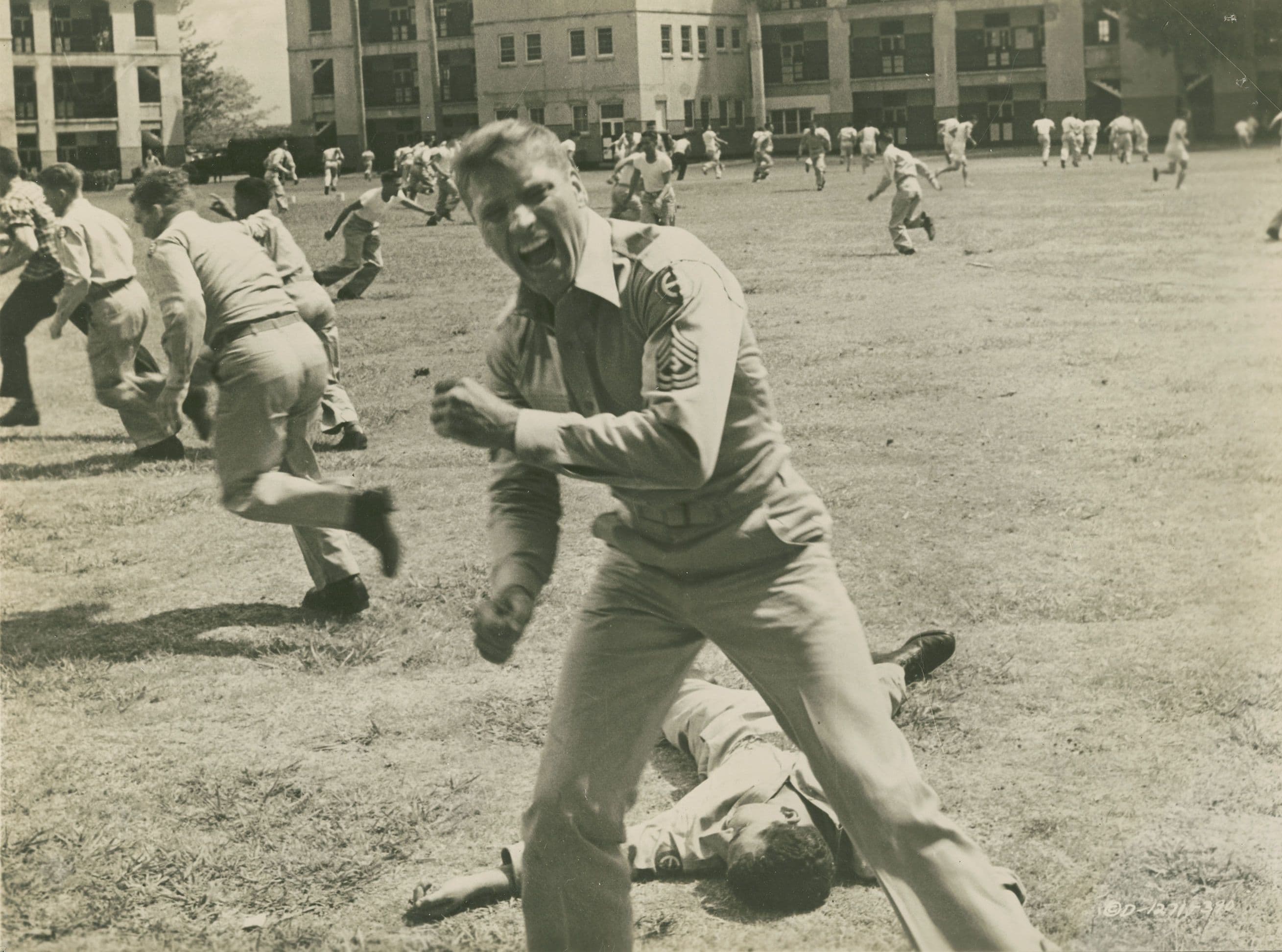

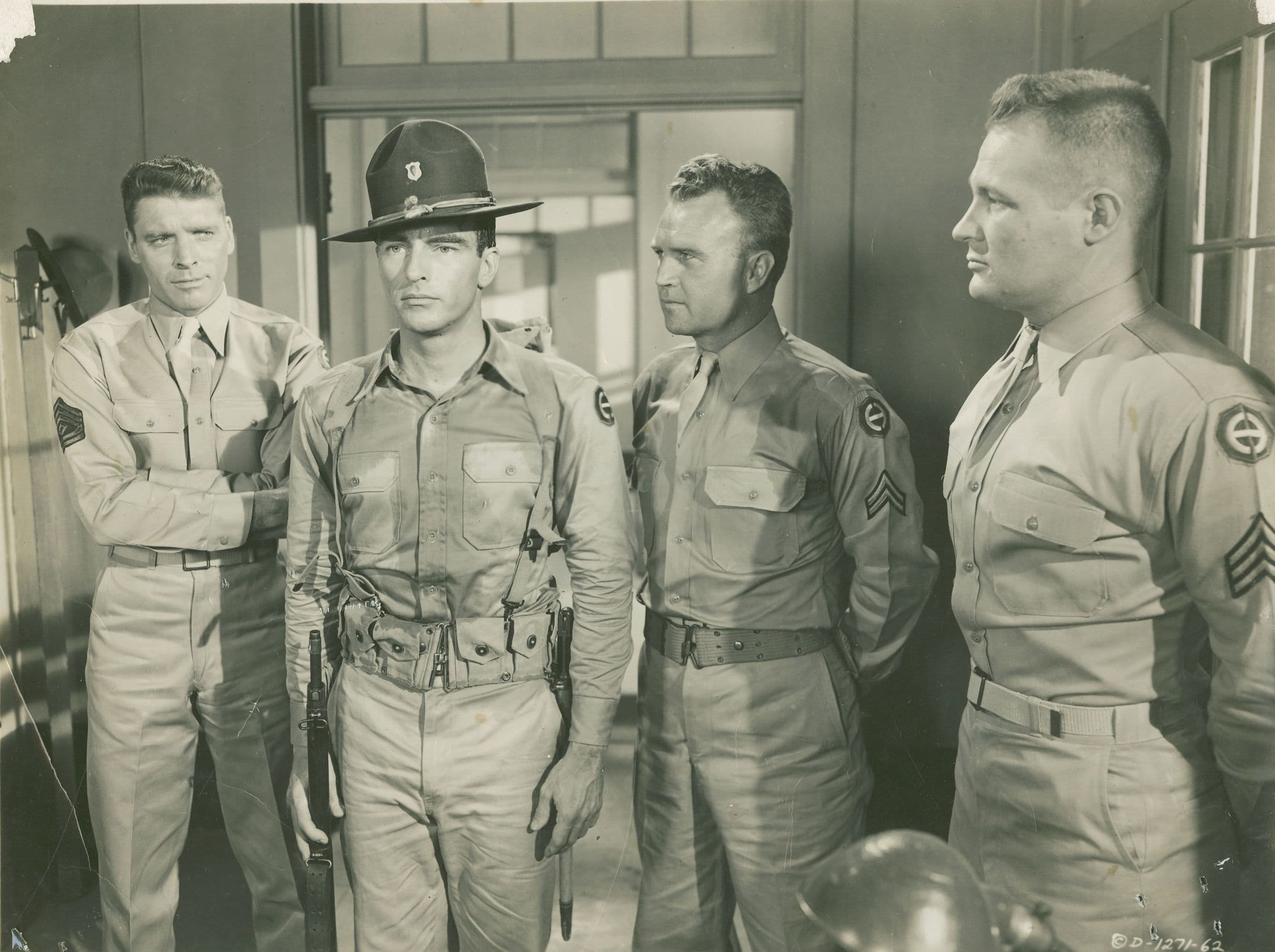
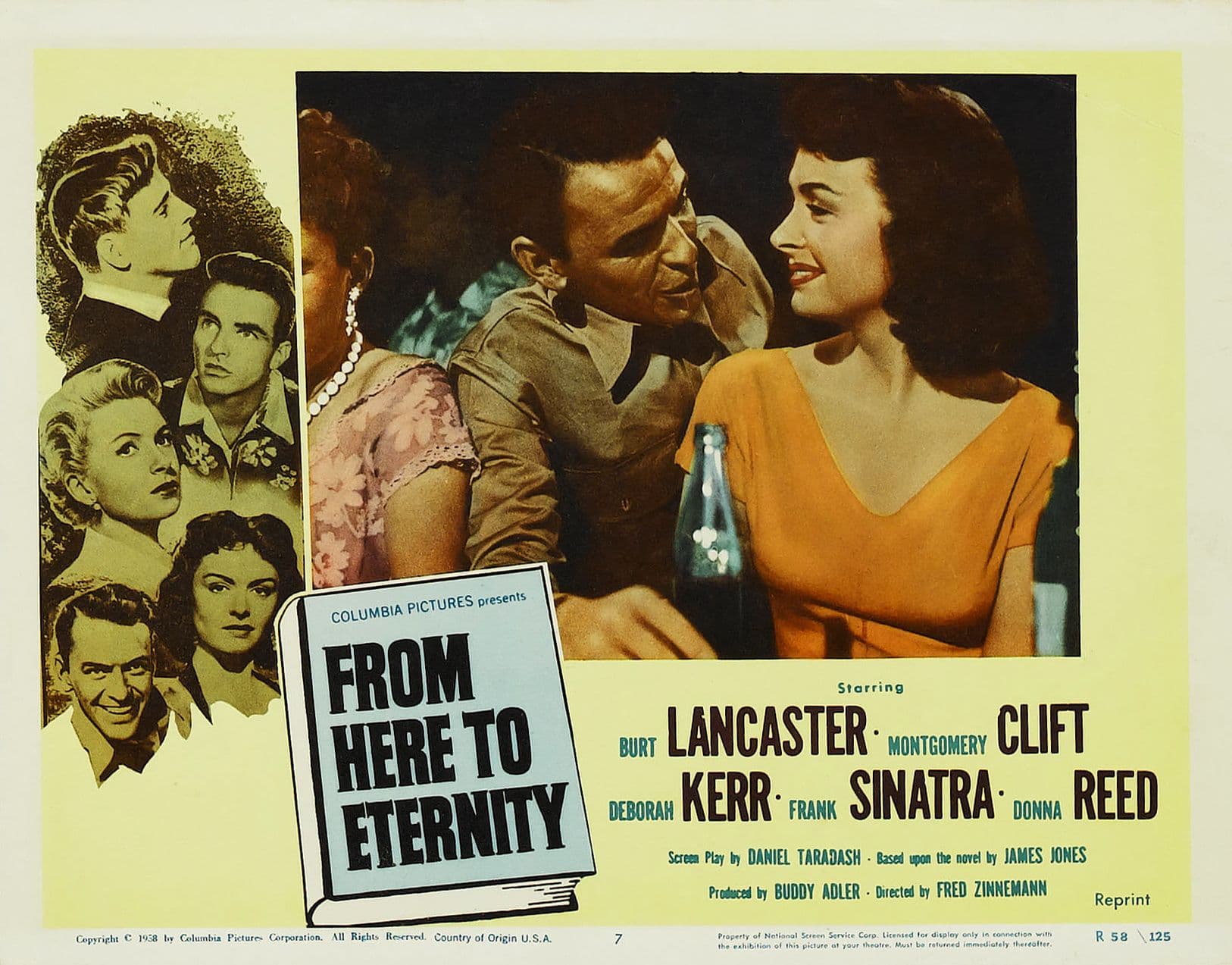
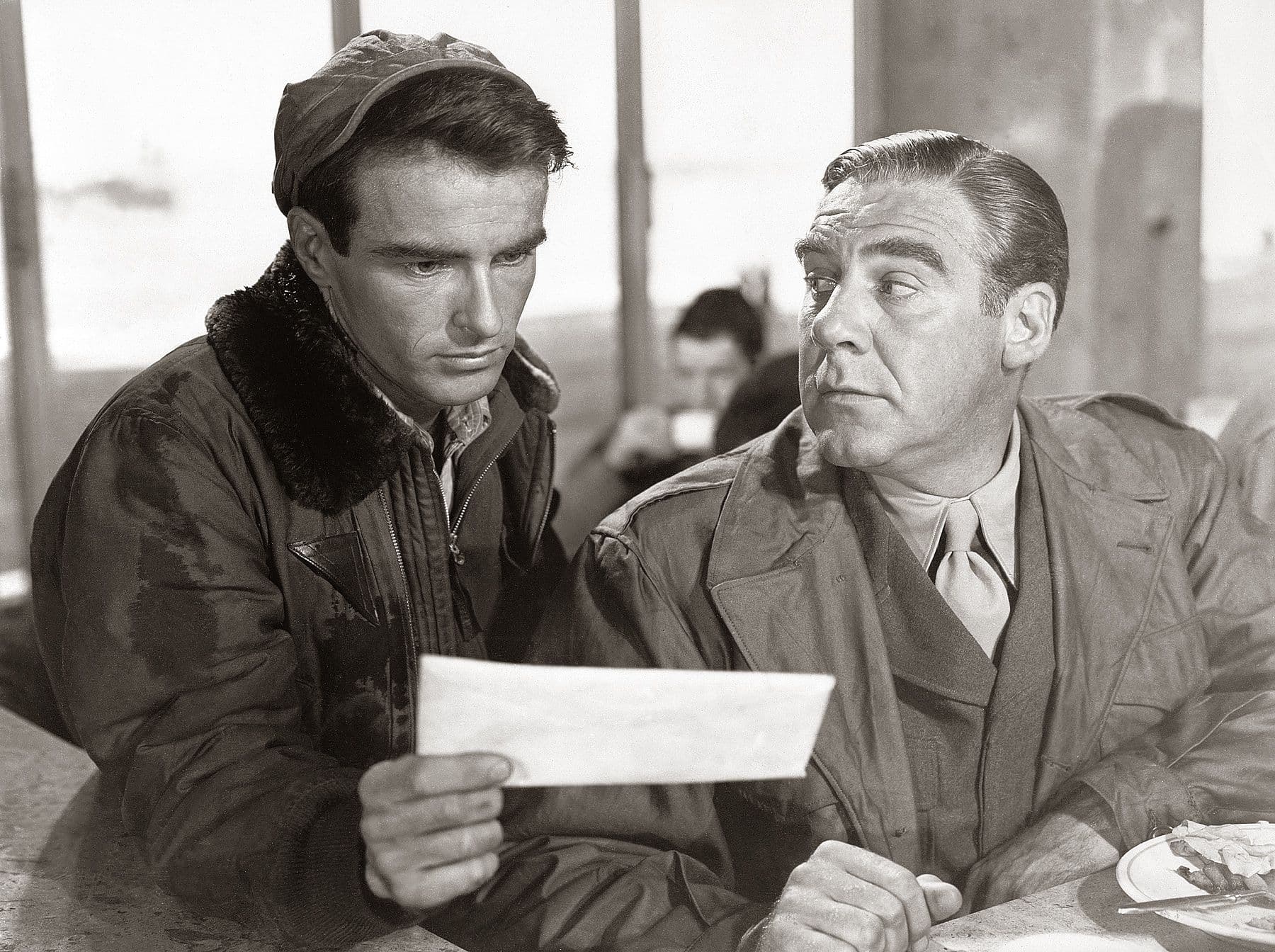
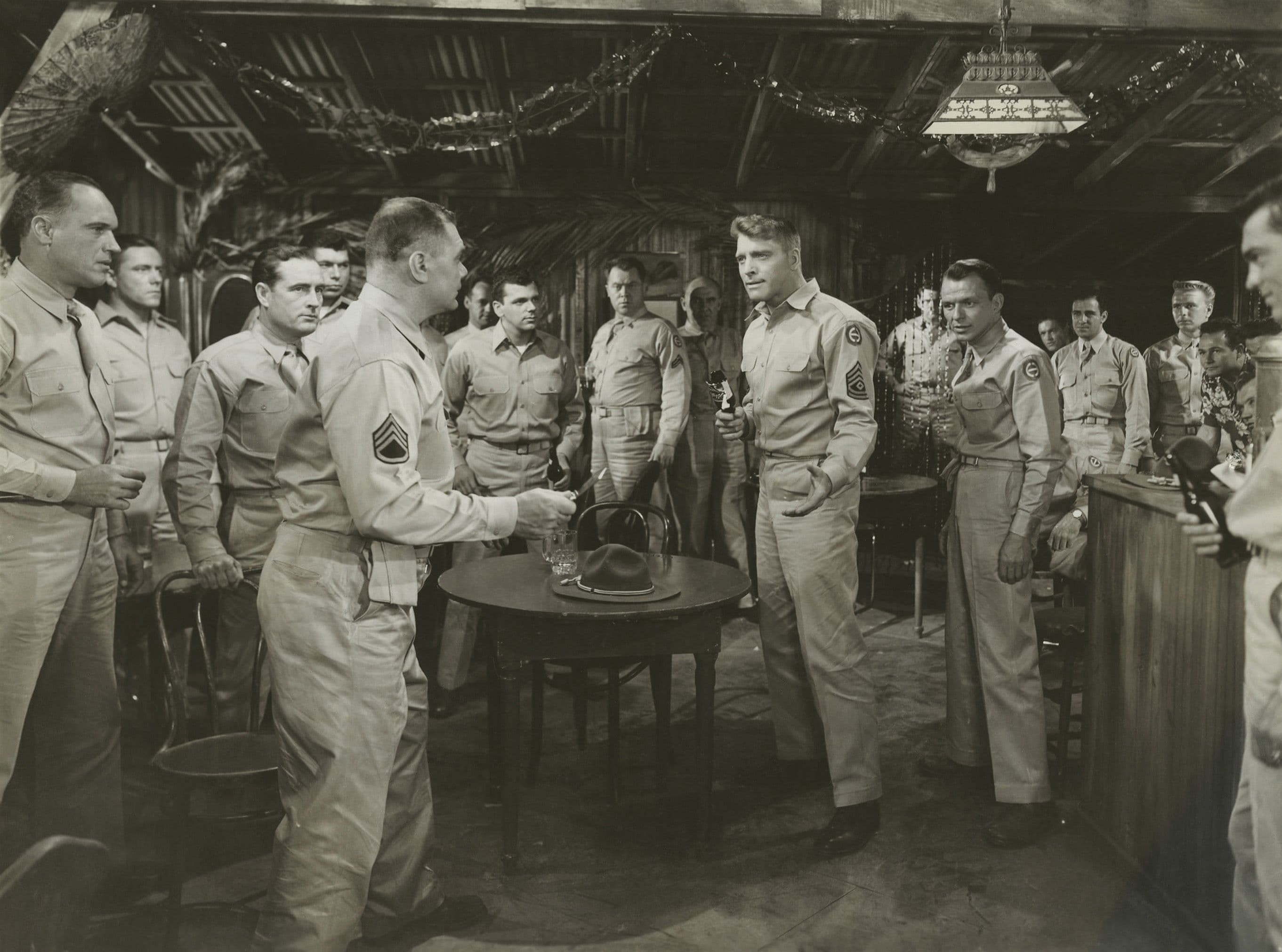
Featured Videos
Official Trailer
Comments
Loading comments...